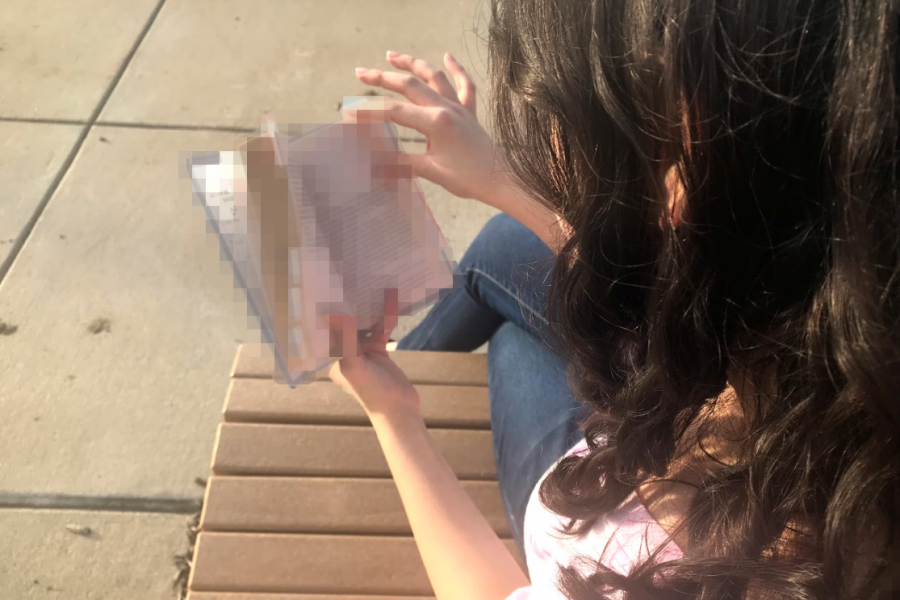Don’t Harm To Kill A Mockingbird
Rozmia Fattah reads a copy of To Kill A Mockingbird.
November 9, 2017
Once again, a school has banned Harper Lee’s To Kill A Mockingbird. In fact, the entire school district of Biloxi, Mississippi has removed the novel from their eighth grade curriculum due to language in the book.
School board vice president, Kenny Holloway, said, “There is some language in the book that makes people uncomfortable.”
The school district claims that the language in the book makes people uncomfortable, but what are novels without their words? And what meaning does a book have if it doesn’t take the reader out of their comfort zone?
Banned books have always been a controversial topic, with To Kill A Mockingbird often at the center. In fact, it is one of the most challenged books in the United States. The novel is set in 1933 and details the struggle of lawyer, Atticus Finch, to defend a black man falsely accused of raping a young white woman. The book at its very core is a controversial one, tackling topics of racial inequality and doing so in a manner that is far from comfortable.
Due to the time period, the book includes racial slurs, which many suspect is a primary reason for the ban. While these words are inappropriate in our modern society, within the context and time period of the book, they were commonplace. People were not always light or kind with their words, and Lee’s novel clearly displays that. Although, I do not believe this is an issue with the book, rather an important detail.
By placing the reader in a time period in which people act in such stark contrast to what they’re used to, it forces the reader to wake up. It brings light to the issues that were present at the time and not only sets the stage for the primary conflict of the novel, but also introduces struggles we can learn from today.
Oftentimes controversial words are necessary for a controversial topic. Without them so much of the impact of the novel would be diminished. To Kill A Mockingbird challenges the topic of racism. It’s not a comfortable read, and it’s not meant to be.
English teacher, Mary Ellen Newcomb, said, “Literature is a window into human behavior – good or bad! We learn about ourselves when we read. If I read a book that infuriates me or disgusts me or challenges my beliefs, I feel that this may make my beliefs stronger because I have to ask why the book bothered me so much. If I find myself enlightened by what I’m reading, I realize that I might need to broaden my views or begin thinking about things I hadn’t considered before.”
Even so, Mississippi is still a racially charged area. Tensions are higher there than they are in our own state, so the idea of the book being banned seems far more ridiculous here than it might there. We have to consider that the issue may not only be the discomfort of white students, but of black students and teachers as well.
While I do agree that banning the book is not the correct reaction to this issue, alternatively, letting students and their parents choose whether they should read the novel or not may pose a better solution. Students deserve the right to educate themselves on past and present issues through literature. We don’t have to force everyone to read the novel if they’re opposed to it, but they at least deserve the chance.
Newcomb said, “I don’t believe there are any positives in banning books. Any parent has the right to keep her child from reading a book, but she doesn’t have the right to keep every child from doing so. The negatives are too many to name, but what a dreary selection of books I’d have to read if every book that was banned was unavailable.”
All classic and famous books are so for a reason. They’ve all introduced a revolutionary idea or style of writing. These classics are taught in school because, even years later, there is still something to learn. There is no possible way to learn from the past if we simply ignore it. There is no way to move forward if we never stop to look behind us. Banning a book will do nothing but ban the knowledge that comes with it.



